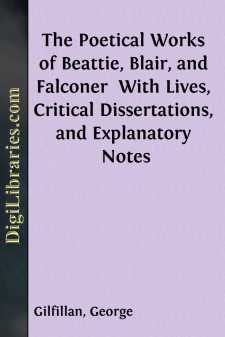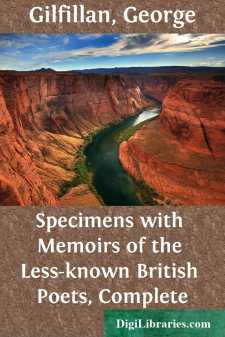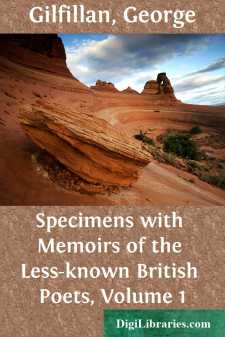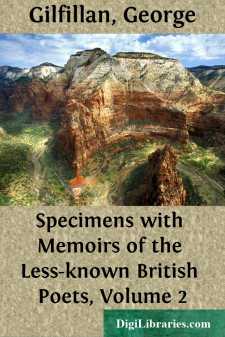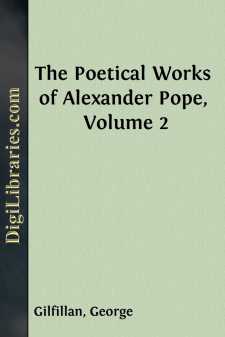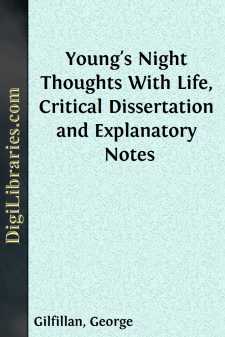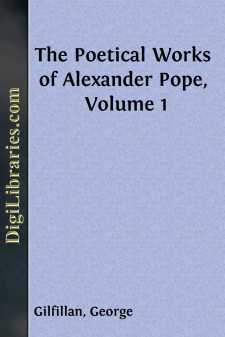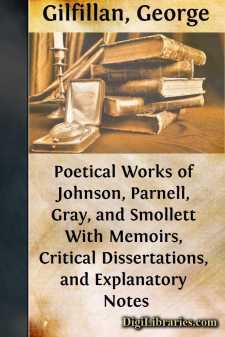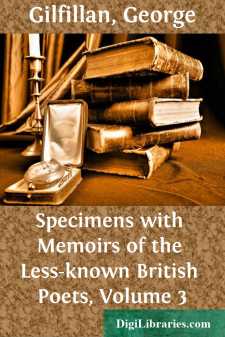Categories
- Antiques & Collectibles 13
- Architecture 36
- Art 48
- Bibles 22
- Biography & Autobiography 813
- Body, Mind & Spirit 142
- Business & Economics 28
- Children's Books 15
- Children's Fiction 12
- Computers 4
- Cooking 94
- Crafts & Hobbies 4
- Drama 346
- Education 46
- Family & Relationships 57
- Fiction 11829
- Games 19
- Gardening 17
- Health & Fitness 34
- History 1377
- House & Home 1
- Humor 147
- Juvenile Fiction 1873
- Juvenile Nonfiction 202
- Language Arts & Disciplines 88
- Law 16
- Literary Collections 686
- Literary Criticism 179
- Mathematics 13
- Medical 41
- Music 40
- Nature 179
- Non-Classifiable 1768
- Performing Arts 7
- Periodicals 1453
- Philosophy 64
- Photography 2
- Poetry 896
- Political Science 203
- Psychology 42
- Reference 154
- Religion 513
- Science 126
- Self-Help 84
- Social Science 81
- Sports & Recreation 34
- Study Aids 3
- Technology & Engineering 59
- Transportation 23
- Travel 463
- True Crime 29
The Poetical Works of Beattie, Blair, and Falconer With Lives, Critical Dissertations, and Explanatory Notes
by: George Gilfillan
Description:
Excerpt
The Life and Poetry of James Beattie
James Beattie, the author of the Minstrel was born at Laurencekirk, in the county of Kincardineshire—a village situated in that beautiful trough of land called the Howe of the Mearns, and surmounted by the ridge of the Garvock Hills, which divide it from the German Ocean—on the 25th day of October 1735. His father, who was a small farmer and shopkeeper, and who is said to have possessed a turn for literature and versifying, died when James was only seven years old; but his brother David, the eldest of a family of six, undertook the superintendence of his education till he was fit to go to the parish school. That school which had been raised to celebrity by Thomas Ruddiman, the grammarian, was now taught by one Milne, whom his pupil describes as also a good grammarian and an excellent Latin scholar, but destitute of taste, and of all the other qualifications of a teacher. Milne preferred Ovid to Virgil; but Beattie's taste, already giving promise of its future classical bent, was attracted by the less meretricious beantics of Virgil; and this author, in Dryden's translation, as well as Milton's Paradise Lost, and Thomson's Seasons, were devoured with eagerness, and copied with emulation, by him in the intervals of his school hours. He was assisted in his studies by Mr Thomson, minister of the parish. In 1749, when he reached the age of fourteen, he entered Marischal College, Aberdeen, and such was his proficiency that he took by competition the first of those bursaries or exhibitions which are given to those students who are unable to support the expenses of their own education. Aberdeen has been always distinguished by its eminent professors. Blackwell, Gerard, Reid, Campbell, the subject of this sketch, Brown, Blackie, &c. are only a few of the celebrated names the roll of its two colleges contains. The two first-mentioned were flourishing at the time when young Beattie entered the University. Blackwell was a learned but pedantic Grecian, who wrote with considerable power and great pomp on Mythology, Homer, and the Court of Augustus. Alexander Gerard was the author of some books of some merit, although now nearly forgotten, on the Genius of Christianity, on Taste and Genius, &c. Under both these Beattie profited very much. He gained a high prize in Blackwell's class, for an analysis of the fourth book of the Odyssey. He did not neglect general reading, nor the art of poetry. He spent much of his leisure in studying and practising music, which he always loved with a passion. We can conceive him, too, the "lone enthusiast," repairing often to the resounding shore of the ocean, or leaning where a greater than he was by and by to lean, over the Brig of Balgounie, which bends above the deep, dark Don, or walking out pensively to the Bridge of Dee, and watching the calm, translucent, yet strong, victorious river running through its rich green banks and clustering corn-fields to wed the sea. No university in wide Britain can be named with Aberdeen, in point of the wild romantic grandeur of its environs, if we include in these the upper courses of the two rivers which meet beside it and Byron Hall....


